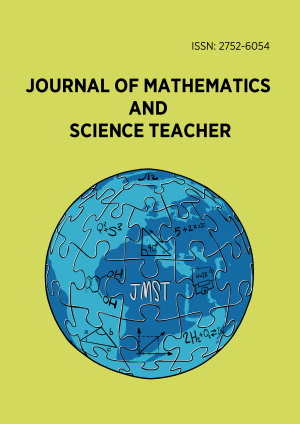Abstract
This study developed and assessed a web-based ethnomathematics instructional content repository for pre-service and in-service mathematics teachers in Benue State, Nigeria. The study adopted a developmental research design to systematically build and evaluate the educational intervention as a solution to complex problems in mathematics education practice. The development was achieved using WordPress Version 5.4, hosted online at https://villagemath.net on Linux OS server running with cPanel v80.p (Build 20), Apache Version 2.4.39, PHP Version 5.6.40 and MySQL Version 5.7.26. The study was guided by seven research questions posed around common web metrics, key performance indices, and quality assessment in terms of content, navigation, structure, appearance and uniqueness of the designed web tool. Five hypotheses were formulated and tested at 0.05 level of significance using t-test. The sample for the study comprises 341 pre-service and in-service mathematics teachers drawn from a population of 2981 using purposive sampling. The main instrument of the study is the researcher-developed Web-based Ethnomathematics Instructional Content Repository Assessment Questionnaire – WEICRAQ (Cronbach Alpha Coefficient = 0.98, indicating a high level of internal consistency of the instrument). Additional data collection was handled using WP Statistics, Pingdom Tools, Google PageSpeed Insights, GTmetrix and WebPage Test. The research questions were answered using charts, graphs, mean and standard deviation. Analysis of the results of the study yielded a positive pattern of common web metrics for the designed web tool, indicating that the platform appeals to a wide range of users, with key performance indicators such as speed index, page size, and last painted hero affirming that the platform is robust, elegantly designed and fast. The results also showed that pre-service and in-service mathematics teachers in Benue State, Nigeria unanimously rated the Web-based Ethnomathematics Instructional Content Repository high in terms of content, navigation, structure, appearance and uniqueness. The outcomes of this study has demonstrated that culture can indeed become an integral part of every aspect of instructional design, making it important to consider social and cultural peculiarities in planning and delivering mathematics instruction. The Web-based Ethnomathematics Instructional Content Repository has humanized Mathematics for users and provided a reservoir of resources for training students in conceptual understanding, procedural fluency, strategic competence, adaptive reasoning and productive disposition. Based on the findings of the study, it was recommended that Mathematics teachers should continue to use the Web-based Ethnomathematics Instructional Content Repository as a worthy companion tailored to their specific professional needs, and that students across all levels of education should seek deeper and more enriched learning experience by continuously leveraging on instructional resources available on the web tool to enhance their individualized learning, enrich their cultural rediscovery, and add aesthetic value to their learning of Mathematics as a school subject. It was also recommended that Mathematics educators in colleges of education and universities should deploy the instructional environment as a veritable tool for re-directing narratives across the field of Mathematics Education, and that Non-governmental organizations (NGOs) and government agencies in the educational and cultural sectors should make use of the ethnomathematics platform to drive their initiatives in grassroots development.
License
This is an open access article distributed under the Creative Commons Attribution License which permits unrestricted use, distribution, and reproduction in any medium, provided the original work is properly cited.
Article Type: Research Article
Journal of Mathematics and Science Teacher, Volume 1, Issue 1, 2021, Article No: em002
https://doi.org/10.29333/mathsciteacher/11075
Publication date: 13 Jul 2021
Article Views: 3966
Article Downloads: 2603
Open Access References How to cite this article
 Full Text (PDF)
Full Text (PDF)